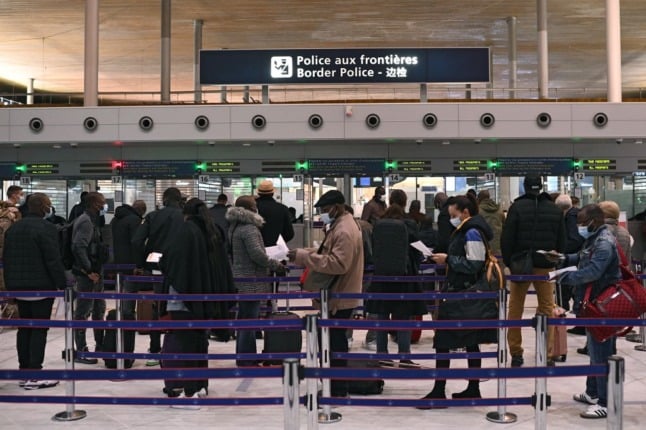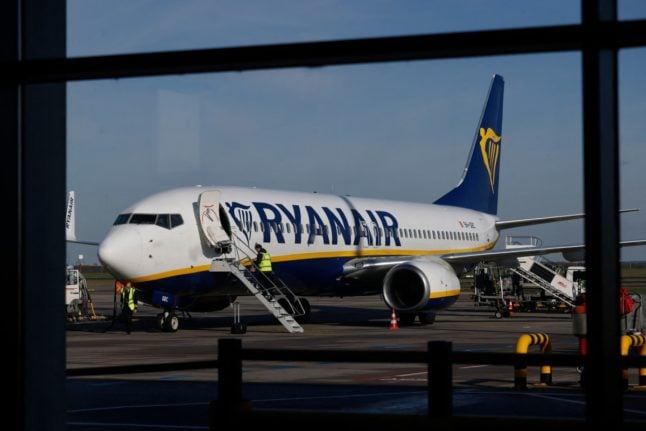As Brits adapt to life post-Brexit there are all sorts of extra restrictions and requirements for those who want to visit France. These are not new, they have always applied to non-EU citizens like Americans and Australians, but they are now applying to British visitors as well since the UK left the EU.
We have outlined HERE the main changes for travellers, but one that has been getting a lot of attention is the attestation d’accueil – which is the certificate that visitors may need if they are staying in private accommodation (ie with family or friends rather than in a hotel, gîte, Airbnb or B&B or at a second home).
We outline exactly what this is and how to get one HERE, but the basic principle is that if you are staying in a private home then your host needs to visit their local mairie in advance and pay €30 for the certificate, known as an attestation d’accueil.
However, there are plenty of people for whom this is not possible – for example second-home owners who are bringing guests with them or people lucky enough to have a friend who has lent them their second home for a short break. The certificate can only be obtained in person from the mairie, so if your host is not in France before your trip, the certificate is not possible to obtain.
If you are a second home owner and travelling to stay in your own property, you can show proof of property ownership such as property deeds or utility bills.
We posed these questions on behalf of readers of The Local to the French Interior Ministry.
Firstly the ministry confirmed that the attestation requirement definitely now applies to Brits as well as other third country nationals like Americans, Canadians and Australians, saying: “British tourists, who are now third-country nationals, are subject to compliance with the conditions for entry into the Schengen area under Article 6 of the CFS [Code des Frontières Schengen or the rules that concern entry into the Schengen space from outside the EU/Schengen zone].
“Since January 1st 2021, they must have proof of sufficient means of subsistence both for the duration of their intended stay and for their return to the UK.”
They went on to clarify the things that Brits may be asked to provide at the border.
“To enter France, British tourists must therefore present
– an attestation d’accueil issued by the town hall (if they are staying in private accommodation) or a hotel reservation (which can be replaced by a sum of €120 per person per day)
– proof of means of subsistence (€65 per day in the case of hotel accommodation or €32.50 in the case of an attestation d’accueil)
– a certificate of insurance for repatriation on medical grounds.”
You can find full details here.
The proof of means is a standard demand for all non-EU nationals entering France – basically you need to prove that you can support yourself while you are staying here and will not become a burden on the French state.
The standard rates are based on the French SMIC (minimum wage) and are presently €65 for every day of your stay if you are staying in a hotel or €32.50 if you are staying with friends or family.
However, if you cannot provide either an attestation d’accueil or proof of a booking at a hotel or similar (gîte, Airbnb, B&B) you have the option to provide proof of means at above the standard rate – namely €120 for every day of your stay in France.
The higher rate of financial proof will also be accepted for people who do not have accommodation booked for the duration of their stay – for example if you’re coming in a camper van or you’re just planning to see where you end up before booking accommodation.
If you have hotels or similar booked for part of your stay you will need to show proof of €65 a day for every day that you have a hotel booking and €120 a day for every day without a booking.
The EU states that proof of means that will be accepted are; cash, travellers cheques, bank statements for the last three months showing the balance of your account at the required level or credit cards (debit cards are not accepted).
The other uncertainty about this is exactly how strict border checks will be. As mentioned, this has always been the policy for other non-EU nationals like Americans and Canadians, yet few of them report having to show proof of accommodation or means at the border.
However, just because it is rare doesn’t mean that it will never happen and if you cannot provide the correct paperwork, border guards are within their rights to refuse you entry.



 Please whitelist us to continue reading.
Please whitelist us to continue reading.
There won’t be many Australians and Americans who would want to routinely fly over to France on a couple of days notice to visit mum and dad for the weekend. And how many of them have second homes here compared with the Brits. A few things are going to have to change if France wants to keep these markets. It’s certainly not the same in all other EU countries.
Most other EU countries with significant tourist sectors have the same rules – there’s nothing special about this requirement.
Pettifogging measures that will do very significant harm to the French tourism and hospitality sector if enacted. The UK has always been one of France’s key and most lucrative source markets. Hard to believe that they won’t be relaxed or conveniently ignored once the effects begin to become apparent.
These are measure that France applied to all non-EU (and non-EEA) countries for decades. Some countries negotiated different rules and hopefully British government will wake up and do the same.
It’s the French tourism sector that will suffer significant damage
On the other hand, it says here that it’s not necessary : https://www.connexionfrance.com/French-news/Lawyers-Attestation-d-accueil-not-needed-for-Britons-visiting-France?fbclid=IwAR3jHiRGx6Kp2Ah-jZc4z_PvBl6g4BJY_ppolfFeeC29eAvZ3xdVegOv1VM
So who’s right ?
Connexion published that a week ago & seems hasty. It’s not needed if you are applying for a visa, but UK nationals don’t need visa for short stay, so they need the attestation:
https://www.service-public.fr/particuliers/vosdroits/F2191#1
“Il (the attestation) doit être validé par la mairie avant la demande de visa (ou avant le voyage en cas de dispense de visa).”
OK thanks. I’ll keep my eye on it. One can’t help feeling that when the Border “Force” calms down a bit, the French will too.